Parashat Mishpatim Judgment-Murder-Abortions-Sanctuary
Timeliness of This Week’s Torah Reading
This week’s Torah Reading could not have been more timely. And I was compelled to respond in the wake of the news we’ve received over the last couple weeks regarding the legalization of late term abortions on demand. And just this week, the proposal for a bill by one state of our union to actually sanction the murder of babies even after birth.
Parashat Mishpatim or Judgment
This week’s Torah Reading is found in Exodus 21:1 through 24:18
But it is here in Exodus 21:12 where Father prohibits the violent taking of another’s life:
“”And if any man smite (also strikes) another and he die, let him be certainly put to death” (LXX).
This in great part is a reiteration of the 10-Commandment instruction that simply stated “Thou shalt not kill” (Exo. 20:13).
Ratsack versus Phoneuso
Interestingly, both the Hebrew and Greek terms used to denote murder in the 10-Commandments differs from that of Exodus 21:12. The Hebrew term in the 10-Commandments is “ratsach” (rendered in the KJV as kill and in other AV’s murder). The Greek term in the 10-Commandments is “phoneuso” which is of course to murder.
Patazo or to Slay
The term used here in the LXX is “patazo” which has essentially 2 meanings:
To strike or hit someone.
To strike down or slay.
It clearly appears, given the stiff penalty that was to be rendered for “patazao,” that the 2nd meaning applies here: that of striking down or slaying someone.
The Hebrew is a bit more precise as the term “naka” means to slay, kill, or strike dead. For it was used also in Josh. 10:26 to denote the murder of another man. The term naka may be of an intentional manner such as described in 2 Sam. 2:23 (premeditated intentional first-degree murder), or unintentional manner as described in Deu. 19:4 (such as voluntary or involuntary manslaughter). We find in this sense that Father sanctioned the execution of both levels of killing or murder as in this verse He makes no distinction.
Murder as a Violent Act
The difference between Exodus 20:13–“thou shalt not kill”–and Exodus 21:12–“If any man smite another”–is that the 10-Commandment verse is speaking to murder, while in today’s reading Abba is addressing any violent act that leads to the death of another. Regardless, murder in Abba’s Torah is strictly prohibited.
Murder Prohibition Dates Back Before Torah
One may think that Father’s prohibition against murder or killing is only here being established for the first time. But truth be told, Abba expressly prohibited murder as far back as the Cain and Abel incident. We saw that Cain was unceremoniously cursed and exiled from his people as punishment for murdering his brother Abel (Gen. 4). And any who sought to kill Cain would be severely punished as well (Gen. 4:15).
Man Formed in the Image of the Creator
Given man’s sinful ways, why did Father care if humans murdered other humans? We find in Genesis 9:6 the answer:
“He that sheds man’s blood, instead of that blood shall his own be shed, for in the image of God I made man” (LXX; cf. Gen. 1:26,27; 5:1).
Interestingly, murder has been a major taboo in virtually every society outside of the Hebraic. Of course it is, given that Father’s instructions regarding proper behavior for mankind extends well before the Sinai Revelation and the gifting of Torah. Yet, as every society delved more and more into paganism, and walked further and further away from God, the horrible stigma of murder diminished. The sanctity of life–the recognition that man was made in the image of His Creator which makes that life precious–in the eyes of the people in these Godless societies the question of murder becomes a relative one. To these nations of people, murder, although inherently evil, may be justified.
The Sanctity of Life Diminishes
Just in the last century, have we not seen the sanctity of life diminished across the board? Even in our so-called enlightened Western countries, murder in so many circumstances is justified in the minds of its people.

New York celebrates the passing of a late term abortion bill. This is open defiance against God and His Law.
Take for instance here in the United States. Just last week, New York passed legislation legalizing the murder of an unborn child up to that baby’s delivery date! And we’re not even talking about the millions of babies who have been murdered under the protection of Roe v. Wade in this country. So far away has this nation walked from God, that the New York governor who signed this bill into law, with smiles and applause, openly and proudly celebrated the bill’s passing.
A Case of Open Defiance Against God and His Laws
So we must ask ourselves: how can a nation that was established on so-called Judeo-Christian principles fall so far away from Yehovah’s laws?
I can’t but help but be alarmed by the statement of someone calling in to the Rush Limbaugh Show, who in comment to the disgusting passage of this abortion bill, gave this sobering explanation as to why: Because man has reached a point of openly defying God and His laws!
It Only Gets Worse
But if this New York travesty and open defiance of God and His Laws weren’t enough, just this week, Virginia politicians were proposing a bill that would legalize the murder of a child after birth. That’s correct. According to the evil spirit of this proposed legislation, the birthing mother in concurrence with her physician(s) would have the option of killing the new born. According to news reports, the permitted justification for terminating the life of that new born was fuzzy to say the least. It was suggested by at least one state legislator in support of the proposed bill that the justification for clinical execution of newborns would be related to concerns for that child being deformed or having some kind of life-impacting ailment or disease.
Murder and Torah
When we talk about Torah’s prohibition against violence—that is the violent smiting or slaying of a human being formed in the image of their Creator by another human—this week’s Torah Reading could not be more timely.
Certainly, there will be a heavy price to be paid for this inexpressible violation of Yehovah’s Torah and the teachings of our Master Yahoshua Messiah.
Yahoshua on the Issue of Murder
From a Yahoshua-centric standpoint, Master came our way and expanded this prohibition against murder. We find in Matthew 5 the following:
“You have heard that it was said to those of old, ‘You shall not murder, and whoever murders will be in danger of the judgment (ie., in danger of judgment that leads to one’s execution). But I say to you that whoever is angry with his brother without a cause shall be in danger of the judgment. And whoever says to his brother, ‘Raca!’ shall be in danger of the council. But whoever says, ‘You fool!’ shall be in danger of hell fire” (vss 21,22).
So many would-be or supposed disciples of Yahoshua have over the centuries railed against any form of violence that would lead to another human’s death. At least, that’s the temperament that most of them put forth to the seeing public. These individuals no doubt felt they were being true to their so-called Christian or Messianic call. And to a greater or lesser extent, they halahkically were being true to their call.
A World of Murderers
However, many of those same folks secretly or openly harbored terrible hatred, bigotry, disgust and anger toward others within and without their communities. Needless to say, this same sentiment is ongoing today in virtually so many of our communities. Little do most of these offenders realize that they are just as guilty of murder as the common murdering criminal on the street; this according to our Master Yahoshua.
Father Codifies His Prohibition Against Murder
Father recognized that the Hebrews had been enslaved in Egypt for a number of years and their moral compasses had no doubt been significantly skewed. Thus He, in His infinite wisdom, reiterated to His people the central principle that murder is a capital offense that should be handled accordingly. However, we find in the proceeding verses of this reading specific provisions related to murder and killing that the nation was to follow.
Through Torah Abba sought to tightly regulate the taking of human life by other humans. The Creator is sovereign and has the supreme authority to determine who should and who should not die; either by His own doing (as with the Egyptians at the last plague) or by the hands of another (as with Joshua’s armies cleaning out Canaan of the pagan nations).
Death Penalty Worthy Violent Crimes
Although all killings were death penalty eligible, Father called out those killings that were especially heinous:
- Smiting to death one’s parents (21:15).
- Kidnapping for the purpose of financial gain (21:16). Although not necessarily murder, the crime of kidnapping was just as heinous in the eyes of Yehovah.
- Mistreatment of one’s parents, again, may not be a murderous offense, it was just as heinous a crime (Exo. 21:17). Do we begin to see a pattern here? Father held the well being and treatment of one’s parents of extreme importance. Any who would transgress ordinances protecting one’s parents was subject to execution.
- The death of an unborn child at the hands of another meant “life for life” (21:23).
So serious was Abba about the sanctity of human life that any who violated this ordinance would themselves be subject to execution.
Unrequited Murder Pollutes the Land
In fact, Father informed us that unrequited murder polluted the land and could not be tolerated:
“So you shall not pollute the land in which you live. For blood pollutes the land and no expiation can be made for the land for the blood that is shed in it, except by the blood of the one who shed it. And you shall not defile the land which you inhabit, in the midst of which I dwell. For I, YHVH, dwell in the midst of the Israelites” (Num. 35:33,34; QBE).
Who’s Blood Will Be Required?
So I ask you: with all the babies that have been aborted in this and other nations of the world over the years and those that will be murdered in the years to come, whose blood will be required in recompense? According to the just cited Numbers passage, one could safely conclude that our nation is horribly defiled because of the unrequited shedding of innocent blood by the hundreds of thousands over the years.
Avengers of Blood
We find also in this same Numbers passage that the shedding of innocent blood that pollutes the land must be avenged if the land is to be made whole again. That responsibility fell to either the nearest kin, or a representative of the elders of a given city. Torah refers to such individuals as “avengers of blood” (Num. 35:12; Deu. 19:6, 12; Jos. 20:3,5,9).
So I have another question to pose to you: if both the next of kin (that of course would be the parents in the case of abortions and terminating a birthed child) and our government officials are responsible for the murder of these aborted and murdered children, how will our land ever be made whole again, assuming that it once was?
Yahoshua Paid the Price
Well, the answer to that question is: only through the atoning sacrifice of our Master Yahoshua Messiah. And until our nation, and all her mothers and politicians who advocated and participated in these murders fall to their knees and plead for forgiveness and turn from their wicked ways and obey the God of Abraham, Isaac and Jacob, our lands will remain irreconcilably defiled I’m afraid.
Involuntary Manslaughter and Torah
Verse 13 of the 21st chapter of Exodus goes on to address those acts leading to death that are NOT premeditated. Better, it addresses those deaths we routinely refer to today as involuntary and voluntary manslaughter. Killings that were accidental in nature or were unknowing or without the knowledge of the offender fell within the realm of this provision.
In such cases, Torah still holds the offender responsible for the death. And although the offender may not have intended to kill his/her victim, he/she is still subject to execution.
Sanctuary for Unintended Murderers
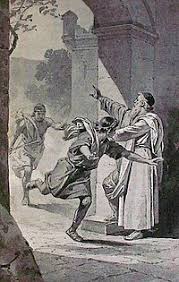
Sanctuary cities were a shadow of the sanctuary that Father offers us from the penalty of sin, through His Son Yeshua Messiah.
We find documented in Numbers 35 and Joshua 20 that six levitical cities were designated as cities of refuge or asylum. Three cities of refuge were selected on either side of the Jordon River. The location of these cities, according to Moody Bible Atlas, made for fairly even access to all of the tribes (cf. Deu. 19:3; Jos. 20:7-9).
Torah a Shadow of Good Things to Come
We find mentioned in Hebrews that Torah was a shadow of the good things to come (Heb. 10:1). Indeed, the provision Abba made for such offenders by enacting and mandating the establishment of sanctuary cities, foreshadowed in many ways the sanctuary we have in Messiah.
Indeed, as a result of our sins, we are most eligible for death. Nevertheless, Abba has enacted and established sanctuary for us through the atoning sacrifice of His Son, Yahoshua Messiah. Praise Yah for His grace and His provision.
Let us Stand in Prayer for our Nation
Let us pray for our nation as our lands are defiled because of the shedding of innocent blood. Fortunately, the Almighty has not only provided the opportunity for our individual death penalty pardon, but also for the cleansing of our nation.
Although not likely, if our nation were to simply turn to YHVH and turn away from her evil ways, the blood of Yahoshua could indeed make her whole again. This simple act could stave the pending judgments that stand against this nation.
We Are Lights to a Lost and Dying World
We are called to be lights to this world (Mat. 5:14; Exo. 19:5; Deu. 14:2; 26:18). For we have the solution to the world’s problems. While it is still day, let us work to deliver the Gospel of the Kingdom to this lost and dying world.
Thank Yah for His Son Yahoshua; the gift of His eternal Torah and Word; and the life of Faith He has blessed us with.
Faithfully,
Shalom.
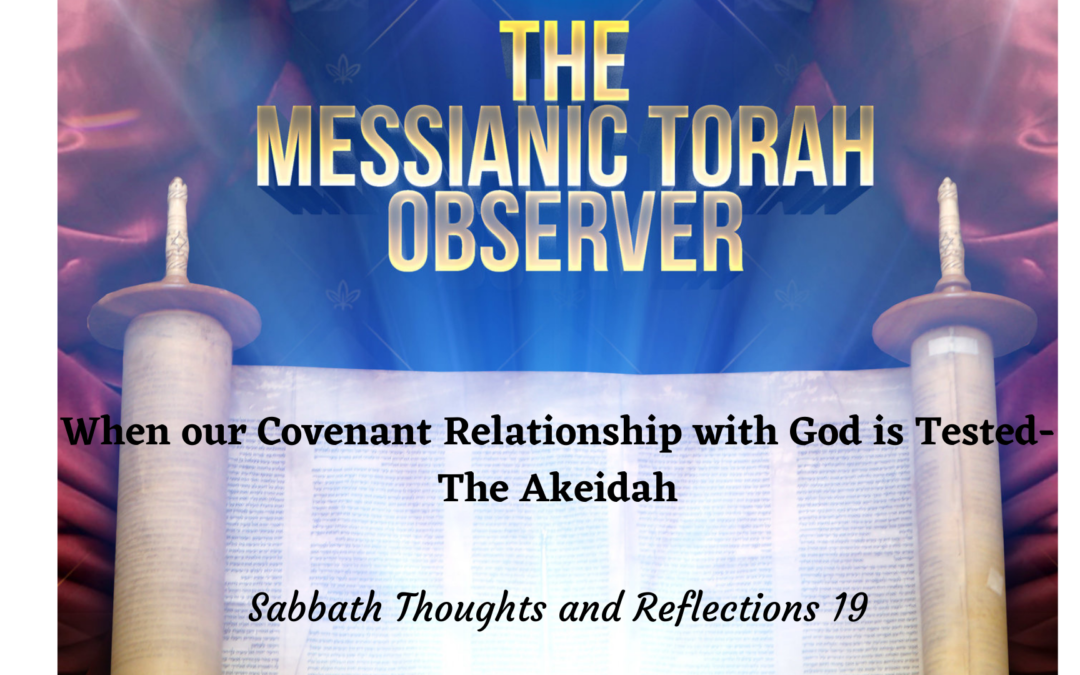
When our Covenant Relationship with God is Tested-Akeida-STAR-19
This week’s Torah Reading is that of the Akeidah or the binding of Isaac. It is a story about obedience, trusting faith and the ultimate goal of the Abrahamic Covenant. We will also explore the ramifications associated with God’s testing of those whom He loves. This is one of the most important Torah Reading Discussions of the Torah Reading Cycle. Come fellowship with us and let’s discuss the Eternal Mysteries of Yah’s Eternal Words of Life.
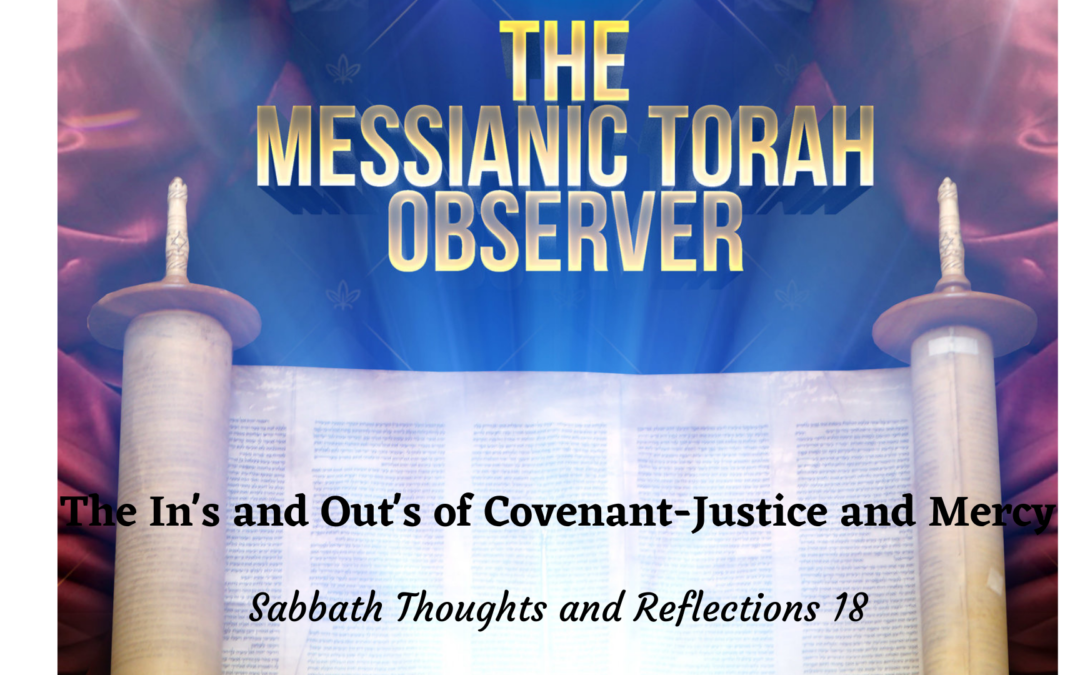
The In’s and Out’s of Covenant-Justice and Mercy-STAR-18
Many of us view covenant as an exclusive club or culture that belongs to God’s elect and those who find themselves outside of covenant are doomed to be outside of God’s blessings and provision. But the truth of the matter is that God operates in ways that are often foreign to us and that defy how we believe God should operate. In today’s Torah Reading discussion, we discuss the in’s and out’s of covenant and how God’s justice and mercy define how He will interact with those who are in covenant versus those who are outside covenant.
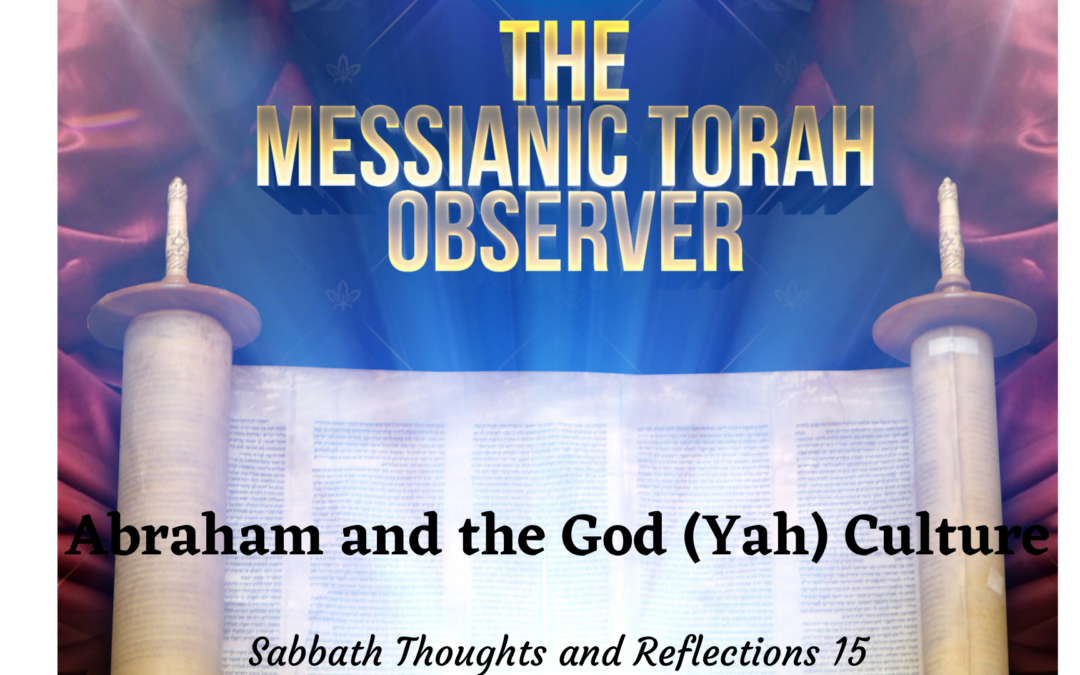
Abraham and the God (Yah) Culture–Sabbath Thoughts & Reflections 15
This week’s Torah Reading touches on a number of relevant themes that include righteousness, justice, reverence, hospitality, boldness, laughter, theophanies and covenant. But the one theme that stands out most is culture. In this installment of TMTO’s Sabbath Thoughts and Reflections, we explore each of these themes, in particular the theme of culture. What is the God Culture/the Hebrew Culture? What was Abraham’s role in that Culture? And what does that culture have to do with us today?
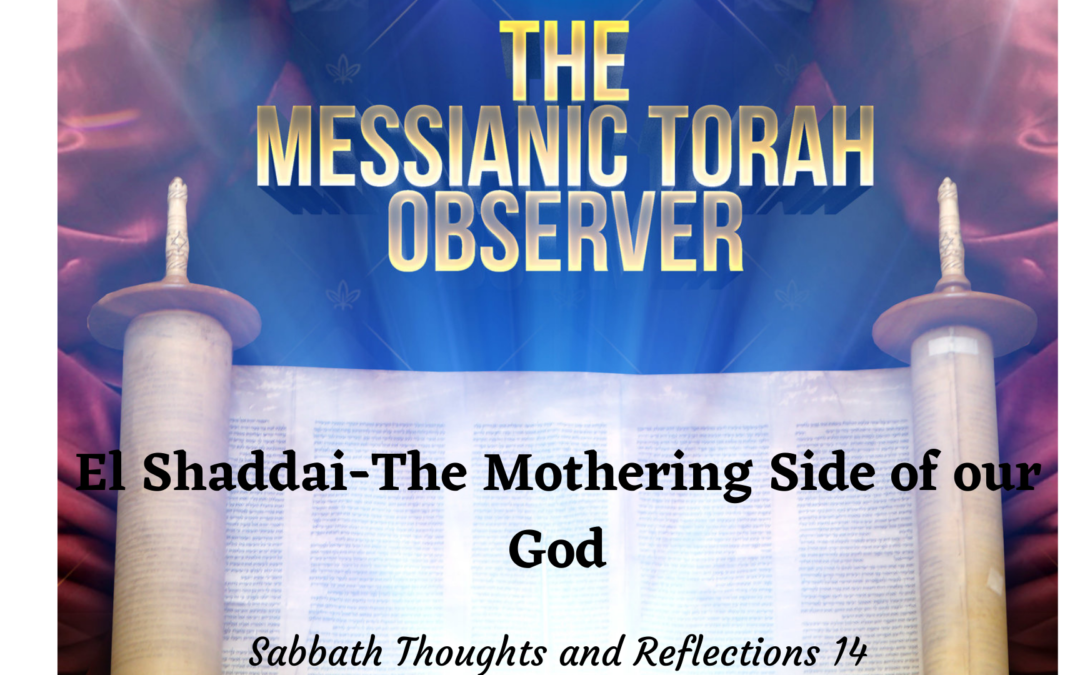
El Shaddai-The Mothering Side of our God-STAR 14
Seems we have been indoctrinated to view God exclusively from a “Fathering” perspective. But could one of God’s revealed names be indicative of a “Mothering” side to the Creator of the Universe? In this installment of TMTO we explore and discuss the power and meaning of El Shaddai.
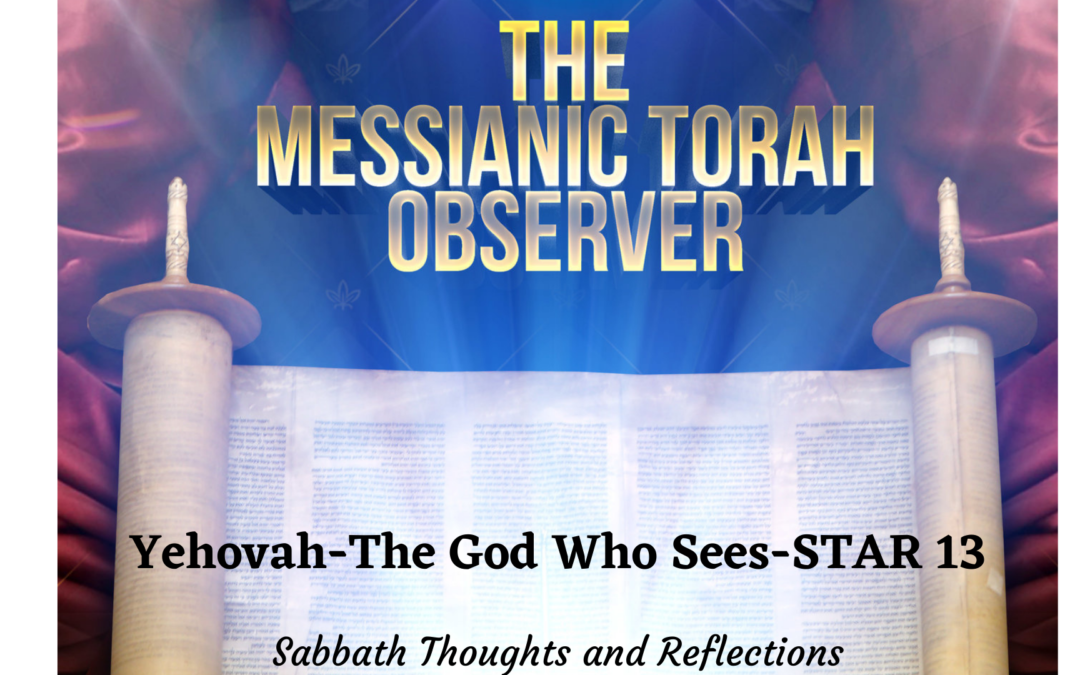
Yehovah-The God Who Sees-STAR 13
In our reading today, we’re led to think and reflect on the themes of:
● Trusting Faith
● Respect
● Patience & Perseverance
● Responsibility
● Honor
● The Spirit Realm Intersecting with the Physical Realm
● Promise
● Sonship
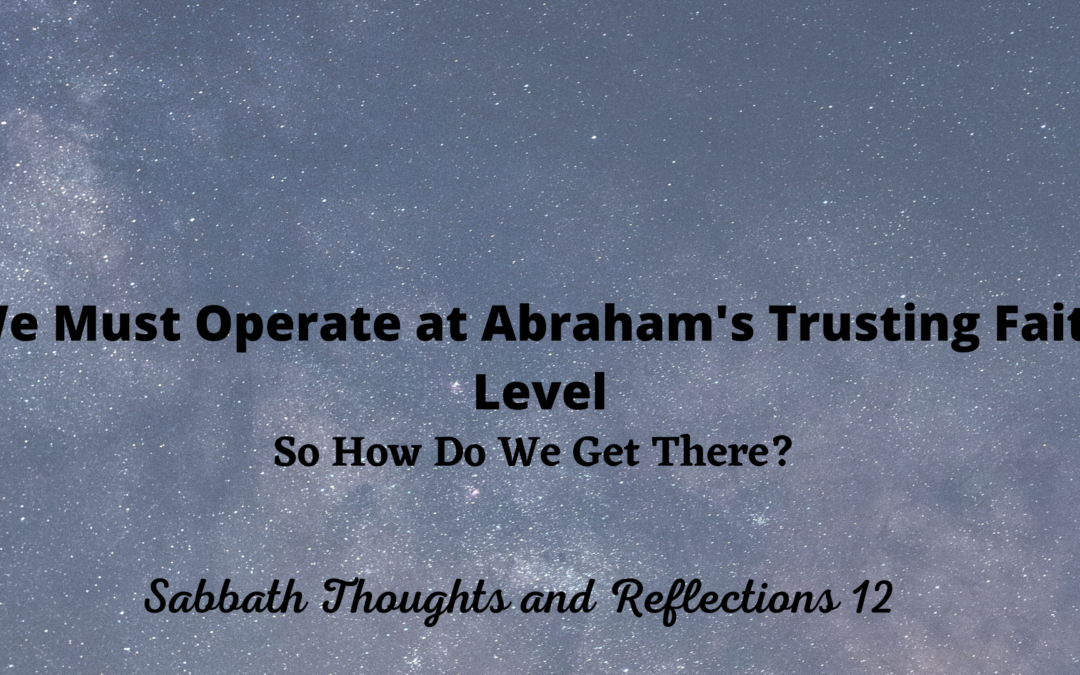
We Must Operate at Abraham’s Trusting Faith Level-So How Do We Get There? STAR 12
Today’s Torah Reading discussion will touch upon a great many themes that include operating in a trusting faith; the righteousness of Elohim; obedience to Yah’s instructions; divine protections and rewards; and the wisdom of challenging or questioning Yehovah.
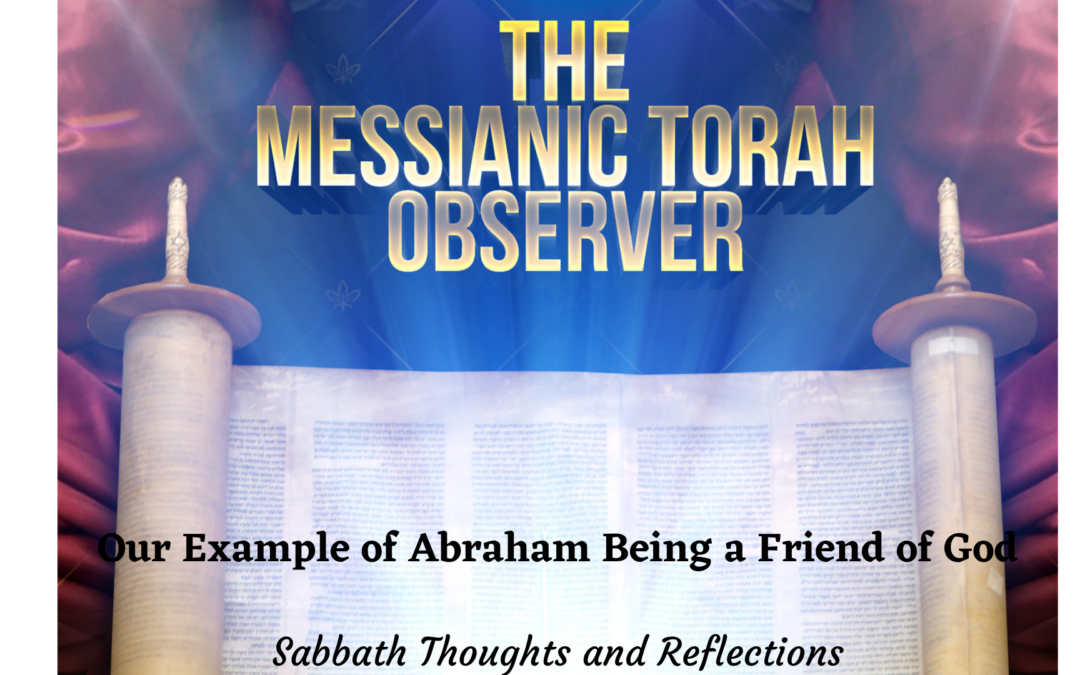
Our Example of Abraham Being a Friend of God-STAR-11
The circumcised heart of an individual—contrite and broken and humble in spirit—is the one thing that captures Yah’s attention and places him or her in contention for being chosen as His friend and ultimately His child. If our heart ain’t right, we ain’t going to be chosen to enter into an obedient covenant relationship with Yehovah, much less a friend or child of His.
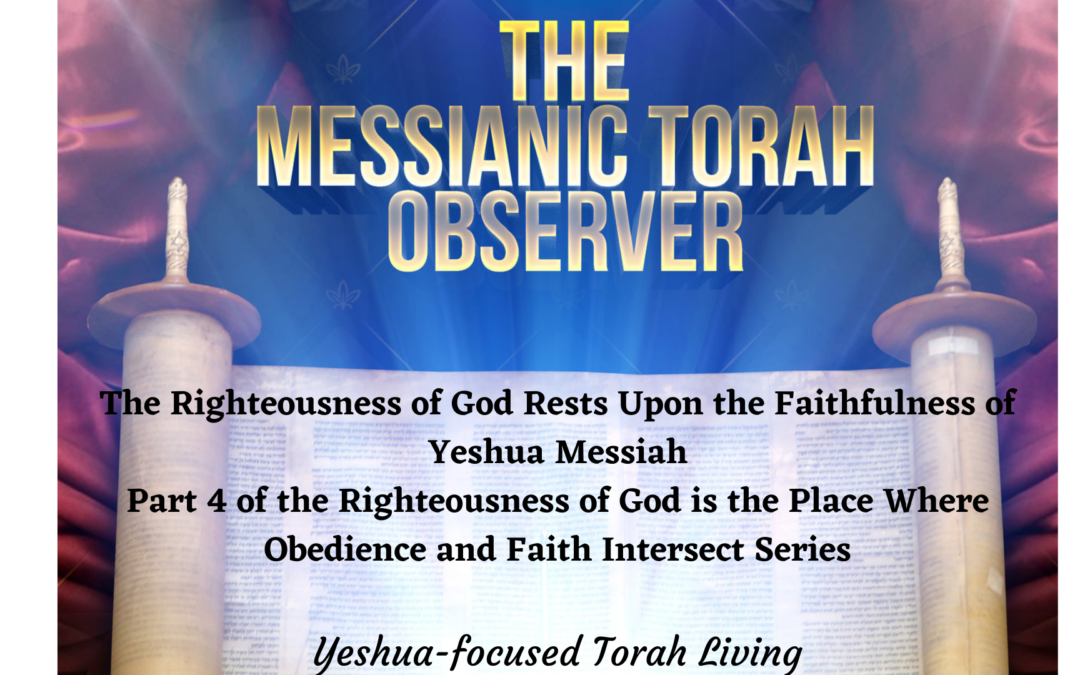
The Righteousness of God Rests Upon the Faithfulness of Yeshua Messiah
Indeed, the Righteousness of God is the place where faith and obedience come together through the Person and Ministry of Yahoshua Messiah. His faithful obedience to Yehovah becomes our faithful obedience, even unto death.
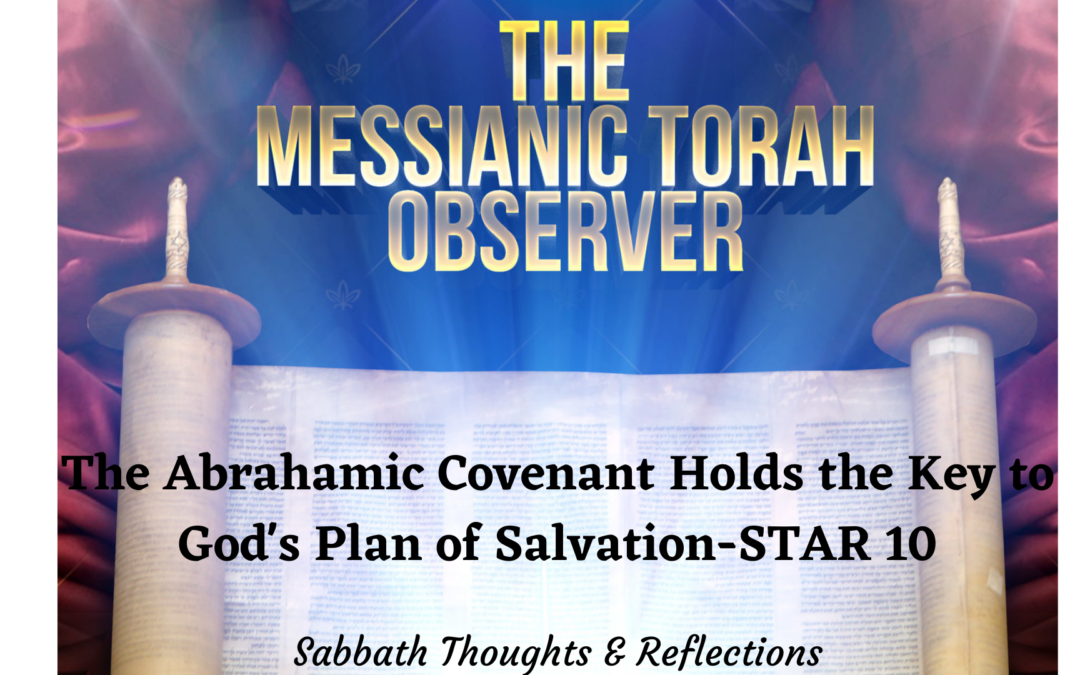
The Abrahamic Covenant Holds the Key to God’s Plan of Salvation-STAR 10
The Abrahamic Covenant is the essential element of this week’s Torah Reading. We find in our discussion that the Abrahamic Covenant holds the key to God’s Plan of Salvation. Shabbat Shalom.
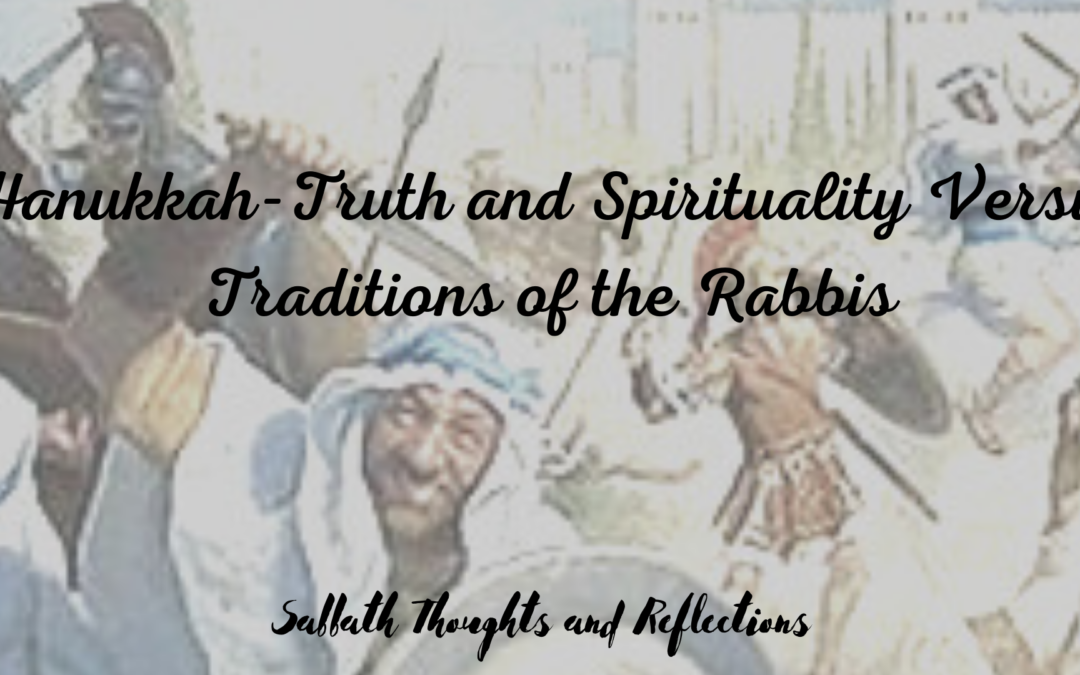
Hanukkah-Truth and Spirituality Versus Traditions of the Rabbis
Many within our Faith Community will be celebrating Hanukkah this week. But is their celebration aligned with the Truth and Spiritual Reality of the Holiday or rather on the Traditions that revolve around it.

0 Comments